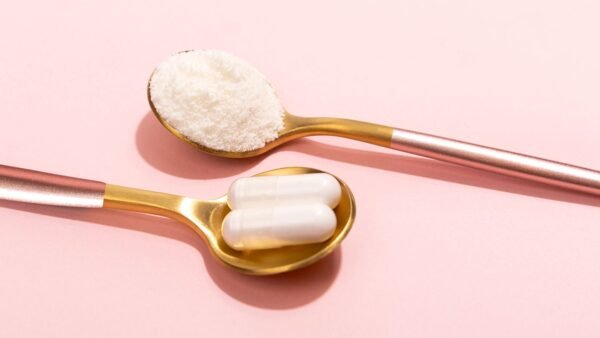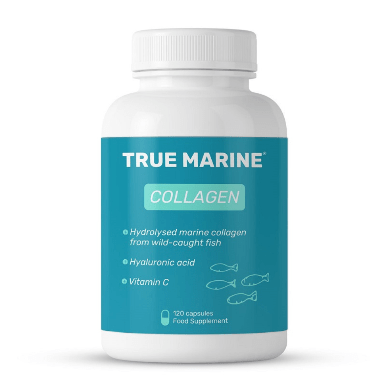
Unlocking the Secrets of Collagen: Your Guide to Healthier Skin and Body

In recent years, collagen has surged in popularity, becoming a buzzword across health, beauty, and wellness communities. But what exactly is this famed ingredient, and why is it garnering such attention?
Collagen is more than just a trendy supplement; it’s a vital protein that plays a crucial role in maintaining the structural integrity of our skin, bones, and connective tissues. As we age, our body’s natural production of collagen diminishes, leading to a heightened interest in how we can supplement this vital protein.
This article delves into the myriad of benefits associated with collagen, from promoting youthful skin to enhancing joint health. Join us as we unfold the top advantages of incorporating collagen into your daily regimen, ensuring your body remains as resilient and vibrant as ever.
What is Collagen?

Collagen is often hailed as the scaffolding of the human body, a protein that is quintessential to our structural integrity. It’s abundant in our skin, bones, muscles, tendons, and ligaments, essentially holding everything together. As the most plentiful protein in mammals, it provides strength, elasticity, and regeneration to various body parts.
The Role of Collagen: At its core, collagen helps form fibrous networks of cells called fibroblasts, upon which new cells can grow. It’s crucial in the skin for elasticity and regeneration, in bones and connective tissues for strength and flexibility, and much more. Essentially, it helps keep our skin supple, our movements fluid, and our structures sturdy.
Types of Collagen: There are 28 different types of collagen, but types I, II, and III are the most prevalent. Type I collagen, for instance, is densely packed and used to form our skin, bones, and other structures. Type II is found in elastic cartilage and aids in joint health. Type III supports the structure of muscles, organs, and arteries. Each type serves a distinct function, contributing to the body’s overall well-being.
Natural Production and Decline: Our bodies naturally produce collagen by breaking down dietary protein into amino acids. However, as we age, this production slows down significantly, leading to the common signs of ageing such as wrinkles, weakening joints, and less elastic skin. This decline typically becomes noticeable around our 30s and continues as we age, which is why many seek external sources of collagen, such as supplements or collagen-rich foods, to counteract the effects.

In summary, collagen’s role in the body is multifaceted and indispensable. From providing structural support to promoting healthy skin and joints, it’s clear why this protein is vital for maintaining a robust and resilient body. Understanding its importance is the first step in appreciating the benefits that come with supplementing our diets with this essential protein.
Top Benefits of Collagen
As a powerhouse protein in the body, collagen’s benefits are wide-ranging and impactful. Here’s how this essential protein can significantly enhance various aspects of your health:
1. Skin Health
- Elasticity and Hydration: Collagen helps maintain the skin’s strength and elasticity, contributing to a firmer, more youthful complexion. It aids in hydrating the skin, which can reduce the appearance of fine lines and wrinkles.
- Wound Healing: Its role in skin regeneration is vital for healing wounds and scars, promoting faster and more efficient skin repair.
2. Joint Health
- Cartilage Support: Type II collagen is crucial for building and maintaining cartilage, the rubber-like tissue protecting your joints. Supplementing with collagen may help improve symptoms of osteoarthritis and reduce overall joint pain.
- Flexibility and Mobility: By helping to maintain the integrity of cartilage, collagen can support joint flexibility and mobility, potentially reducing the risk of joint deterioration.
3. Bone Health
- Strength and Density: Collagen makes up a significant part of bones, giving them structure and helping keep them strong. As collagen decreases with age, bones may become weaker; hence, collagen supplementation could help maintain bone density and reduce the risk of bone disorders.
- Support in Bone Regeneration: It’s involved in the process of bone formation, suggesting that collagen supplements might be beneficial in maintaining bone health as we age.
4. Muscle Mass
- Structure and Function: Collagen is a significant component of muscle tissue, so it’s vital in maintaining muscle mass and function. This is particularly important as muscle strength decreases with age.
- Metabolism and Healing: Adequate collagen levels can help promote muscle healing post-exercise and may support a healthy metabolism by aiding in the maintenance of lean body mass.
5. Other Benefits
- Hair and Nail Health: Collagen may increase the strength of nails by preventing brittleness and help hair to grow longer and healthier.
- Gut Health: Some studies suggest collagen may help support the lining of the digestive tract, which is crucial for preventing gastrointestinal conditions.
- Weight Management: While more research is needed, some believe collagen can aid in weight management by promoting fullness and potentially boosting metabolism.
In conclusion, collagen’s benefits are extensive and can significantly impact various aspects of health and well-being. From improving skin and joint health to supporting bone density and muscle mass, incorporating collagen into your diet or supplement regimen, such as collagen complex, might be an advantageous move for those looking to improve their overall health.
How to Increase Collagen Intake
Enhancing your body’s collagen levels can be beneficial for health and beauty, and there are several ways to boost your intake. From dietary sources to supplements, here’s how you can increase your collagen:
Dietary Sources
The most natural way to boost collagen is through your diet. Consuming foods rich in protein, like chicken, fish, beef, and eggs, can provide the amino acids necessary for collagen production. Additionally, bone broth is particularly rich in collagen and can be easily incorporated into your diet. Vitamin C also plays a critical role in collagen synthesis, so including vitamin C-rich foods like oranges, strawberries, and bell peppers is beneficial.
Collagen Supplements
Collagen supplements offer a convenient route for many looking to boost their collagen intake. When considering such supplements, it’s important to account for their source and the specific type of collagen they contain to align with your health objectives.
TRUE MARINE stands out as a high-quality marine collagen supplement, celebrated for its purity and efficacy in delivering Type I collagen, predominantly beneficial for skin health. It’s a top-selling, highly-rated choice made right in the UK.

Alternatively, for a broader perspective on available products, Readers Digest provides a comprehensive roundup of the best collagen supplements available on the UK market. This resource is invaluable for comparing various options and selecting a supplement that best fits your personal health needs and preferences, ensuring you make an informed choice in your journey towards enhanced wellness.
Lifestyle Considerations
Apart from diet and supplements, certain lifestyle factors can influence collagen levels. Avoiding excessive sun exposure, smoking, and high-sugar diets can help preserve collagen in the body. Regularly incorporating physical activity and staying hydrated are also beneficial for maintaining healthy collagen levels.
In summary, increasing collagen intake can be achieved through a balanced diet, high-quality supplements, and a healthy lifestyle. Whether you choose to enrich your diet with collagen-rich foods or opt for a supplement like True Marine or explore other options through Good Housekeeping’s recommendations, these strategies can contribute to improved health and vitality.
Final Thoughts
In this article, we’ve delved into the essential role of collagen, a key protein that sustains our body’s integrity and vitality. Collagen offers numerous benefits, from improving skin elasticity and hydration to enhancing joint and bone health.
Beyond being a buzzword in beauty, it is a fundamental aspect of our health, significantly impacting our overall well-being and life quality. As collagen production naturally decreases with age, actively increasing its levels can counteract ageing effects and promote a healthier, more vibrant body.
In summary, embracing the power of collagen opens the door to better health, beauty, and wellness. We recommend exploring collagen’s potential and consulting a healthcare professional for its optimal inclusion in your lifestyle.













































